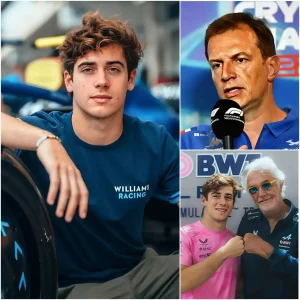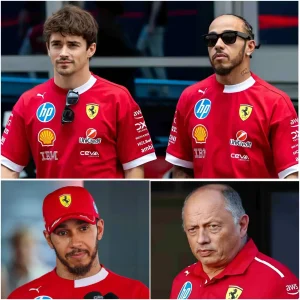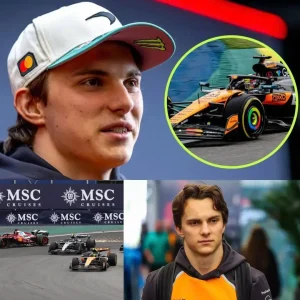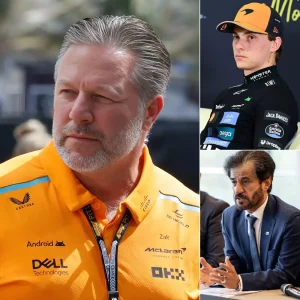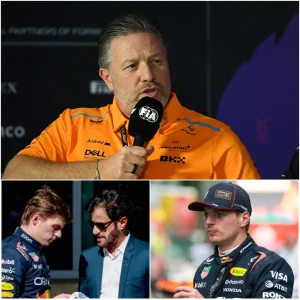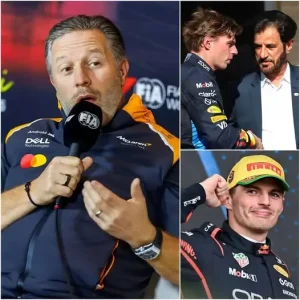In a rare moment of openness, Gemma Pinto offered insight into the current physical and mental state of her partner, MotoGP star Marc Márquez, following the crash that injured his shoulder. Her carefully balanced words—”he’s recovering quite well, but we don’t dare say too much yet”—reflect both the optimism and cautious uncertainty that often follows serious injuries in top-level motorsport.
The incident in question occurred during the Indonesian Grand Prix, when Marco Bezzecchi’s Aprilia collided with Márquez’s Ducati, sending both riders sliding off the track at high speed. Márquez grabbed his right shoulder as he tried to get up, causing immediate concern in the paddocks and among fans. Subsequent medical examinations revealed that he had suffered a fracture at the base of the coracoid process as well as ligament damage to that same shoulder. Importantly, doctors ruled out any significant bone displacement and determined that this injury was separate from any of his previous fractures or surgeries.
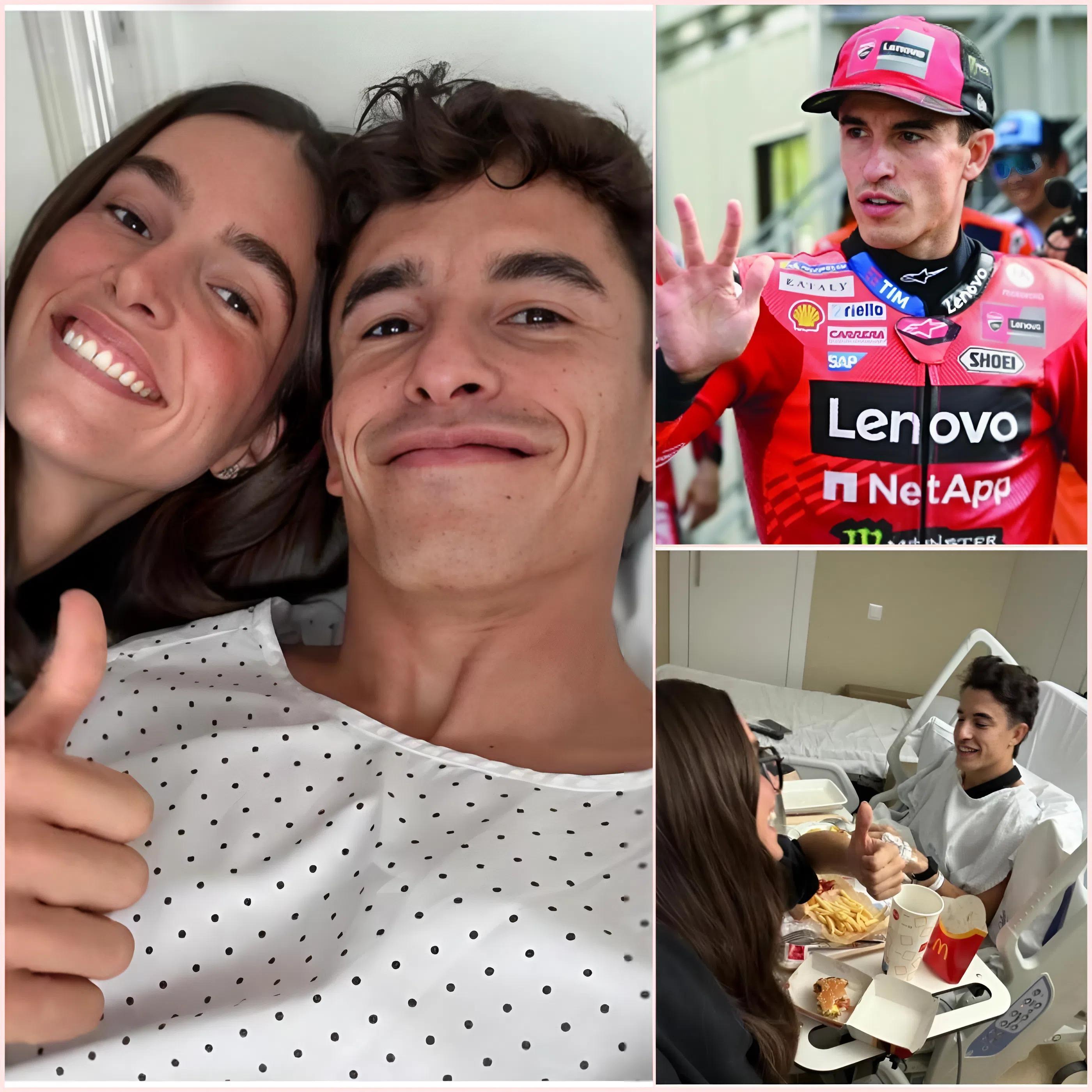
Ducati confirmed that Márquez would miss at least the upcoming Australian and Malaysian Grands Prix while his rehabilitation continues. In a public statement, Márquez stressed that his return would be guided by medical advice rather than ambition. “My goal is to be back before the end of the season, but I will not rush the recovery beyond what the doctors recommend,” he said.
It is in this delicate balance—between hope and caution—that Gemma Pinto’s role takes on its full meaning. In her public remarks, she stated that while Márquez’s recovery shows encouraging signs, the emotional and psychological toll of the injuries should not be underestimated. She described parts of the process as an “odyssey,” speaking of her closeness to one of sport’s most celebrated but often scarred champions.
His messages reflect the dual perspective shared by many in Márquez’s inner circle: they see a champion still capable of excellence, but are acutely aware that past injuries—and the demands of elite racing—can complicate even well-planned comebacks. His reluctance to make bold claims of success speaks to a realism born of experience.
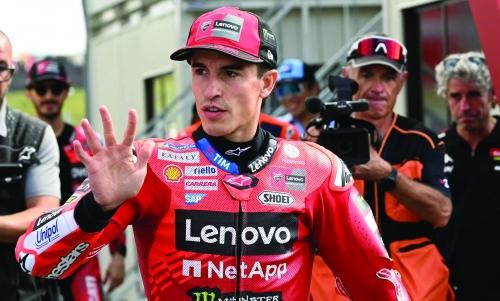
In recent years, Márquez’s career has been punctuated by cycles of injury, surgery, and comebacks. After a devastating arm injury in 2020, for example, he underwent multiple surgeries and had to miss extended periods of time. His resilience during these seasons reshaped both his public image and the internal narrative of his career; many now consider him an athlete who endured as much as he dominated.
His time at Ducati marked another turning point—one that tested not only his adaptability as a rider, but also his mindset. In interviews, he acknowledged that the setbacks forced him to change not only his riding style, but also his outlook. Today, his priorities are to find a balance between competitiveness and well-being.
Yet, despite everything he has endured, uncertainty about recovery remains. Gemma Pinto’s comments underscore how even small strides in rehabilitation must be viewed with caution. Her choice of wording—”I’m recovering quite well” coupled with “we don’t dare say too much yet”—speaks to the fragile optimism needed during such phases.
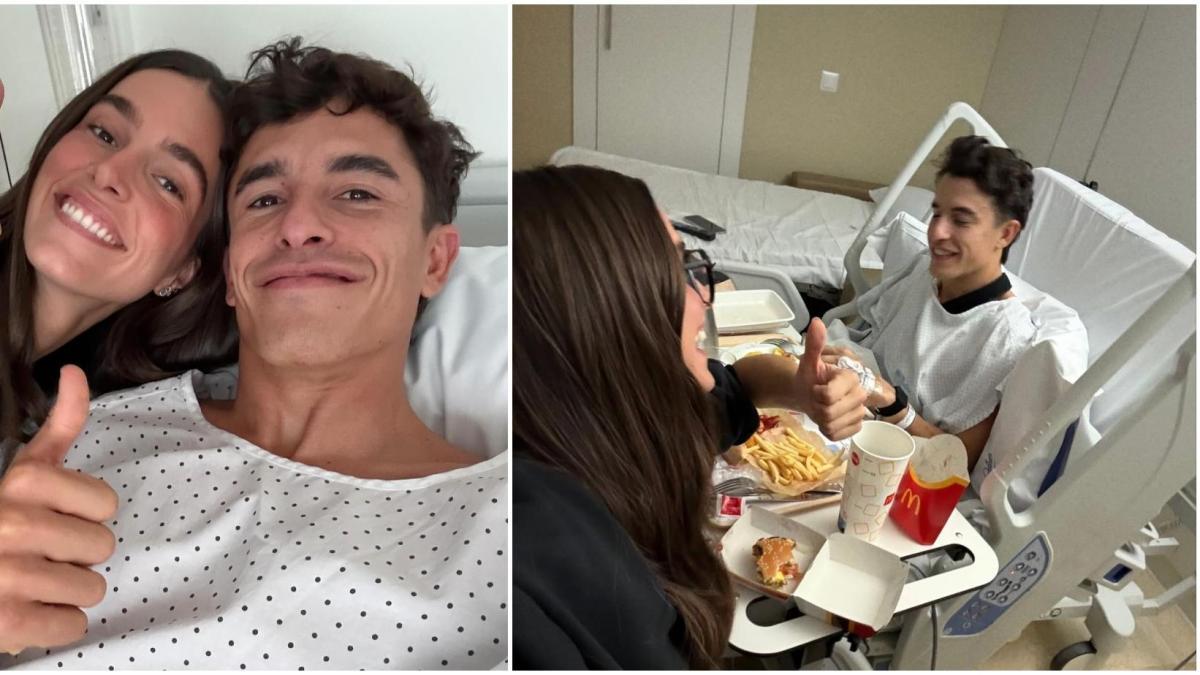
For the MotoGP community, the fans, and Márquez himself, the next few weeks will likely be closely watched. Will his recovery progress smoothly enough for a return in Portugal or Valencia? Will his strength and fitness match pre-injury levels? These are questions still unanswered—and perhaps unanswered for now.
What is certain, however, is that Márquez is not alone in this fight. Pinto, his team, and his medical staff are all banking on a return based on caution rather than haste. Even as the world hopes for another spectacular comeback, it will also respect the fact that sometimes the greatest victories lie in the recovery itself.

